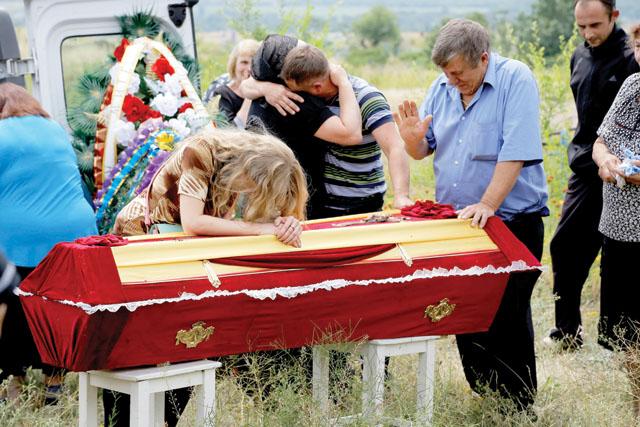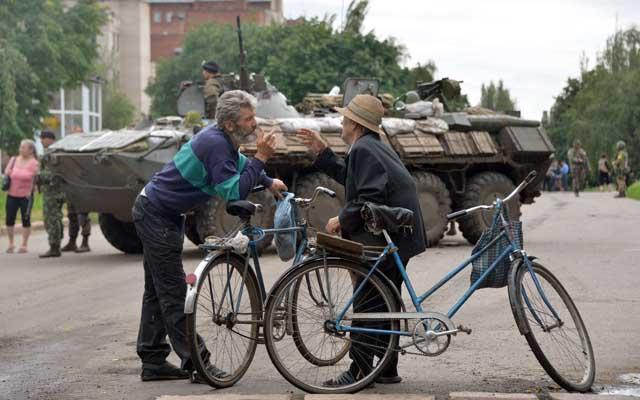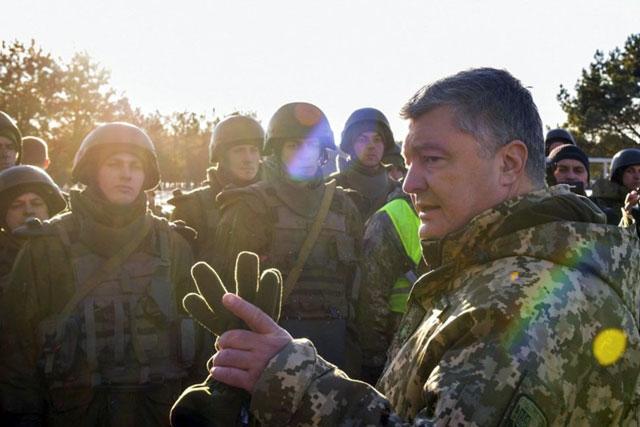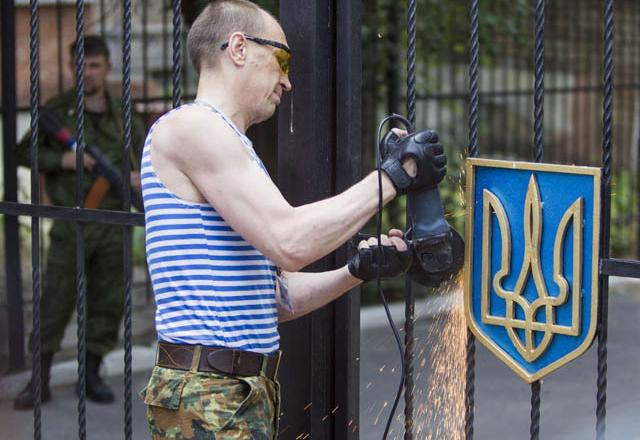You are here
Ukraine offers regions more powers to calm insurgency
By AFP - Jun 26,2014 - Last updated at Jun 26,2014

KIEV — Ukraine’s new Western-backed president is due on Thursday to submit constitutional changes expanding regional powers in the hope the measure will help calm a bloody pro-Russian insurgency convulsing his ex-Soviet state.
The long-deliberated step comes a day before President Petro Poroshenko signs the final chapters of an historic EU accord in Brussels that opens Ukraine’s way towards eventual membership and pulls it firmly out of Russia’s reach.
The submission of constitutional changes to parliament also comes on the same day that Poroshenko gets German Chancellor Angela Merkel and French President Francois Hollande to join him for a second round of telephone diplomacy with Russian President Vladimir Putin in two days.
Putin came under intense pressure from both European leaders and US President Barack Obama on Wednesday to rein in separatist fighters over whom he says he has no control.
Obama warned that sweeping economic sanctions were imminent unless the Kremlin stopped “the flow of weapons and militants across the border” and persuades militants to abide by a fragile truce.
Washington added that sanctions would be also discussed by EU leaders on Friday when they sign the full Association Agreement with Ukraine that was ditched by the ousted pro-Russian president in November and now lies at the heart of the raging crisis.
The US kept up the pressure on Thursday, with US Secretary of State John Kerry warning that the Kremlin had to prove within “hours” that it was working to disarm rebels.
But 11 weeks of fighting that have already claimed more than 435 lives and brought factories in the economically vital eastern rustbelt to a virtual standstill continued on Thursday despite the ceasefire agreement.
A spokesman for Ukraine’s “anti-terrorist operation” said 10 paratroopers were wounded in rebel attacks on government roadblocks on Wednesday.
Ukrainian media reports said gunmen had also attacked a small airport on Thursday morning in the flashpoint village of Kramatorsk.
Poroshenko’s one-week unilateral ceasefire order last Friday was picked up by senior separatist leaders on Monday in a seeming breakthrough in a conflict that has left some cities in ruins and displaced tens of thousands.
But the downing by militias of a Ukrainian army helicopter on Tuesday drew a warning from Poroshenko that he may resume the campaign before the ceasefire agreement expires on Friday morning.
Putin has urged Kiev to extend the truce to give more time to peace negotiations that the warring sides began on Monday and were due to continue on Thursday.
Rights to regions
Poroshenko’s Western allies have long urged Kiev to amend Ukraine’s basic law and devolve the central authorities’ extensive controls over regional affairs.
Washington views such a system as more efficient. But it also hopes that it may appease local leaders and Russian-speaking voters enough to suspend their sovereignty drive.
Russia counters that only an outright switch to a federal system in which regions can adopt their own foreign trade policies could work in country as culturally splintered as Ukraine.
The proposals outlined so far by Poroshenko stop well short of meeting the Kremlin’s demands.
His changes would enshrine in the constitution the use of Russian in official business and public schools in independence-minded regions such as Donetsk and Lugansk.
Poroshenko said he was also willing to let local legislatures nominate regional governors instead of having them named directly by the president.
The amendments will be registered in parliament on Thursday but are unlikely to come up for debate until at least next week.
But analysts at the Eurasia Group political risk consultancy said there remained “an unbridgeable gap” between what Russia wanted and what Poroshenko was willing to cede.
“Moscow is seeking a structural guarantee that, via its influence over Ukraine’s south and east, the Ukrainian government will be unable to move a unified Ukraine deeper into European political, economic and, above all, security structures,” the Eurasia Group said in a report.
“Ceding this level of autonomy to regions is impossible for President Poroshenko, who must demonstrate to his own constituents that he is capable of establishing control over a united Ukraine and that, while relations with Russia are critical, capitulation to Kremlin pressure is not acceptable,” it stressed.
Related Articles
Ukraine on Tuesday brushed off strong European pressure and rejected talks with pro-Russian rebels on a truce to halt a bloody insurgency convulsing the ex-Soviet nation until they laid down their arms.
BERLIN/MOSCOW — Ukrainian President Petro Poroshenko on Thursday accused Russia’s Vladimir Putin of wanting to annex his entire country and
Ukraine launched delicate dual-track diplomatic negotiations with Russia on Monday aimed at averting a debilitating gas cut and ending a bloody separatist insurgency by the end of the week.














